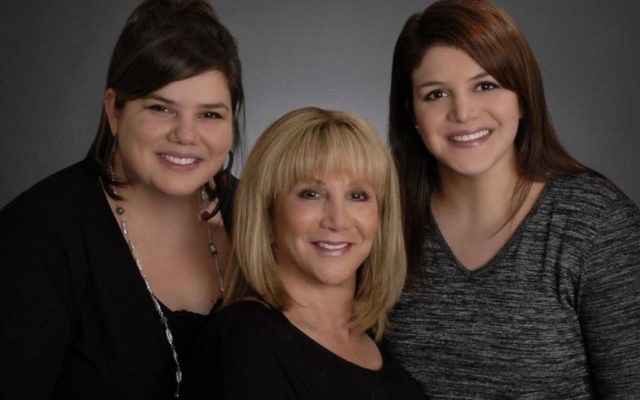BRCA’s Big Reveal
Maxx Schube never thought her two daughters would have to battle breast cancer. But after the BRCA gene mutation was discovered in her family, that’s what happened.
Alana was diagnosed with breast cancer at 23, and older daughter Rochelle had a double mastectomy at 29 as a preventive measure.

“I don’t know why I didn’t think anything about it,” said Maxx, who herself is a breast cancer survivor and lost a sister to ovarian cancer. “I didn’t think they’d get the gene. I didn’t think they’d get breast cancer.”
Alana was a college senior when she felt a lump during a breast self-exam. When she had a biopsy, the radiologist said there was a 99 percent chance she was fine. Three days later, she got the call that the growth was cancerous.
“She’s so strong and so brave, just courage beyond belief for her age,” Maxx said. “She always says, ‘My friends don’t get it, and they don’t know what to say to me.’ I say, ‘You know what, hon? Twenty years from now, you’ll be able to help them. You just got it earlier.’ ”
Alana went through chemotherapy; used a Cold Cap, which saves hair by freezing the follicles; and had a double mastectomy. But her cancer came back at age 24, this time under her armpit.
“Every day she would talk about a recurrence to the point where I would get mad at her,” Maxx said. “She said, ‘Mom, I knew I would have a recurrence. I think I’m good.’ ”
Alana has gone through another round of chemotherapy and will have surgery and radiation.
While Alana was dealing with her first bout of cancer, Rochelle, who had tested positive for the BRCA gene at 23, had an abnormal MRI. After discussing her options with doctors, Rochelle decided to have a prophylactic double mastectomy.
“I decided that I just couldn’t wait anymore,” Rochelle said. “I didn’t want to have to go through what my sister was going through. I never wanted my parents to ever have to feel that again.”
Last June, Rochelle had the surgery and reconstruction and had to fight her insurance company over the preventive procedure.
“It is, but it wasn’t elective,” the social worker said. “It was emotional. To even have to go through this and then have to turn around and have to fight for the thing I’m most upset about, it was definitely an array of emotions. There’s anxiety involved. It’s a major surgery. A lot of people don’t get it. I didn’t do this because I wanted perkier boobs.”
She said people don’t understand the difficulty of the choice she and others have made. “It’s not a choice we want to make. It’s not like you can go to the store and say, ‘I’d like to order two mastectomies.’ They’re not going to just give it to you.”
The Schubes’ struggles are why they’re being honored this month at Greater Atlanta Hadassah’s Breast Strokes: The Big Reveal, part of Hadassah Bares All for A.R.T. (Awareness, Research & Treatment).
“It’s a really rough story and very emotional,” said Annie Kohut, who works with Hadassah. ‘They’re a wonderful family. It’s about them.”
The event features 35 local breast cancer survivors who volunteered to have their torsos painted in October. Photos of those body paintings, printed on large canvases, will be sold to raise money for breast cancer research.
“It’s very, very meaningful,” Kohut said.
It’s also important to get the word out to Jewish women about their chances of testing positive for the BRCA gene, said Diane Alexander, the doctor who performed Rochelle Schube’s breast reconstruction. The gene is more prevalent in the Ashkenazi population.
“Why is a hard question,” Alexander said. “In new breast cancers, 10 percent are BRCA-positive that we see. In the Ashkenazi population, it’s much higher than that. When you’re looking for who to test for the BRCA mutation, some surgeons think just being Ashkenazi is enough to warrant being tested.”
For the Schube women, being involved with this year’s event is a way to get the word out to other women.
“I don’t want women to be afraid to speak up,” Maxx said. “Cancer doesn’t care how old you are anymore. Back in the days, it was our grandmother’s disease. It was women in their 60s and 70s. Now, it’s when you’re in your 20s. This is what’s scary to me: These young girls need to take it seriously.”
—
What: Breast Strokes
Where: Stave Room at American Spirit Works, 199 Armour Drive, Atlanta
When: 8 p.m. Saturday, Feb. 20
Tickets: $36 for those 36 and under, $54 for others until Feb. 12, then $65; www.hadassah.org/events/breaststrokes or 678-443-2961




comments